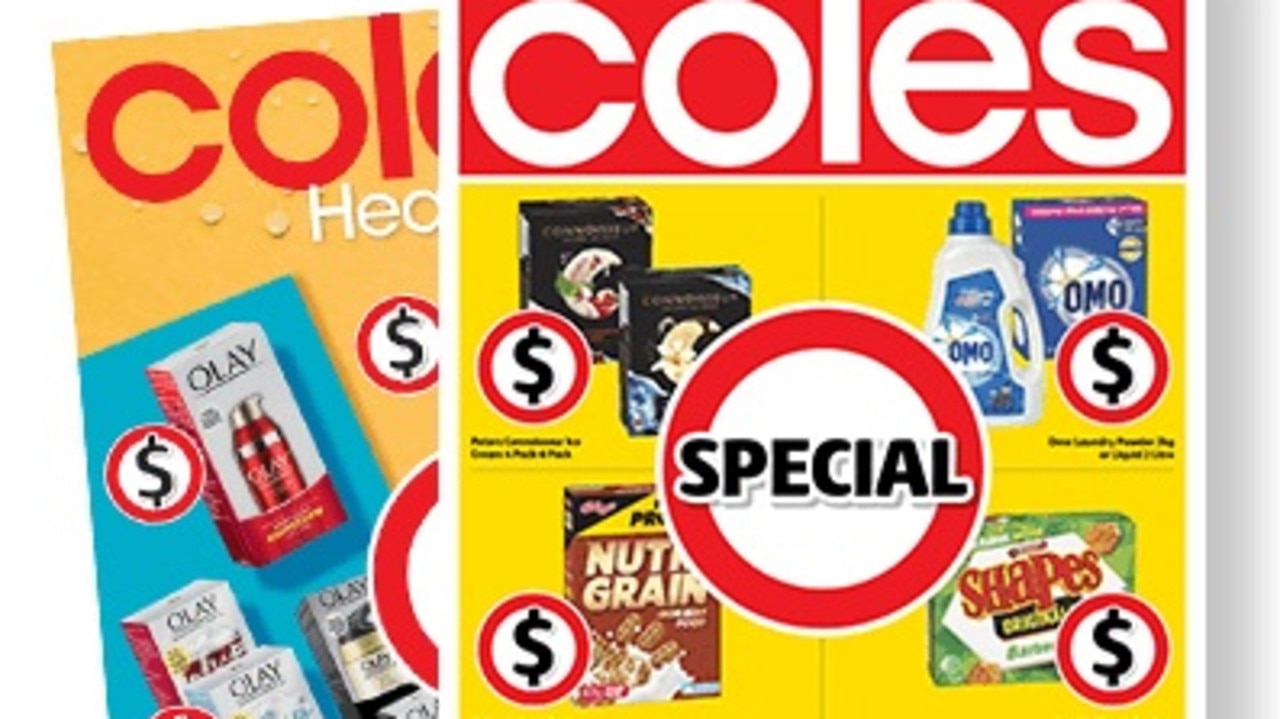Coles ceases physical catalogues in favour of online services
It has been a staple of the Aussie supermarket giant for decades – but it will soon disappear forever for one “unprecedented” reason.
Aussie grocery juggernaut Coles has revealed it will pull its iconic catalogue delivery within weeks.
The news was announced after shoppers increasingly went online during the coronavirus pandemic, which meant physical brochures were “no longer as relevant”.
As a result, paper catalogues – which have been a weekly feature for decades – will no longer be delivered to letterboxes across the country from September 9.
Coles Group CEO Steven Cain said COVID-19 had sparked a shift to online shopping, with many customers opting for contactless home delivery and Click & Collect services for the first time.
He said there had also been an increase of more than 50 per cent in readership for the company’s digital catalogue since March.
Paper catalogues had already been temporarily suspended during the first wave of COVID-19 due to limited product availability caused by a surge in demand.
“We are living at a time of unprecedented societal change, including a surge in the diversity of consumer tastes and dietary needs,” Mr Cain said.
“As customers add more fresh food to their diet they’re shopping more often, and their appetite for immediacy and digital information means a weekly, one-size-fits-all, catalogue in their letterbox is no longer as relevant for them as it once was.”
The traditional catalogues will be replaced by “coles & co”, a digital, personalised alternative that offers shoppers specials along with exclusive content to “inspire” with new products, tips and recipes.
RELATED: Graph shows what is killing Aussie malls

RELATED: Follow our live coronavirus coverage
The coles & co specials will be “shoppable”, meaning you can buy them straight from your screen, or save it to a digital shopping list to be checked in store.
“We’re using our digital capabilities to replace it with something more personalised. As we add new features, this could include recipes that change daily rather than weekly, as well as tailored content on food and drink trends,” Mr Cain said.
“We will be investing more in digital content and capability for customers and suppliers, as well as better value by lowering the cost of breakfast, lunch and dinner, and improving our sustainability by reducing our reliance on paper.”
Eventually, Coles plans to have chefs and contributors – including Curtis Stone – providing fresh daily content, with coles & co available from Thursday from the Coles website.
The decision to abandon old-school catalogues will also save over 10,000 tonnes of paper every year – the equivalent of an estimated 80,000 trees.
“Since 2000 we have delivered around 200 billion pages of weekly catalogues to letterboxes across Australia,” Mr Cain said.
“We’re committed to being Australia’s most sustainable supermarket, and reducing our reliance on paper by prioritising digital channels like coles & co is a significant step towards that goal.”
But diehard catalogue fans are in luck, with a “significantly reduced volume” still available within stores.
Meanwhile, The Real Media Collective, an industry association representing companies in Australia’s paper, print, publishing and related distribution industries, has slammed the decision which CEO Kellie Northwood described as “disingenuous”.
“The claim that Coles is stopping production of its supermarket catalogues due to environmental concerns is simply disingenuous,” Ms Northwood said.
“For every Coles customer spending 60 seconds browsing a digital catalogue they will emit 12g of CO2 compared to looking at a printed catalogue for a day and only emitting 0.5g of CO2. All of Coles catalogues are made from a renewable resource, using biodiverse and planted forestry principles, and the paper making process is powered by hydro-electricity – paper carries the highest environmental credentials over e-waste and CO2 powered digital streaming.”




